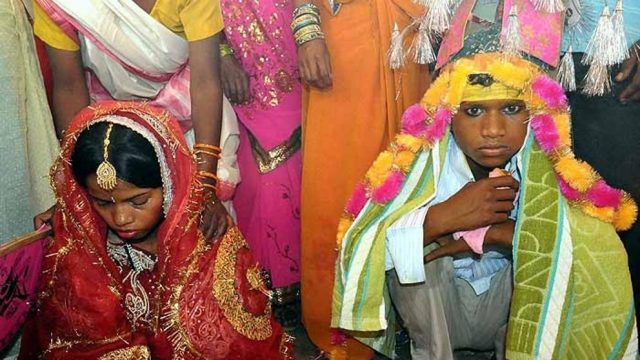
COVID-19 increases risk of child marriage, female genital mutilation: UN

The COVID-19 pandemic is reversing the progress on ending child marriage and female genital mutilation (FGM), compromising the futures of millions of girls, a senior United Nations official said on Tuesday (June 30).
Natalia Kanem, head of the United Nations’ sexual and reproductive health agency, UNFP said that an additional 13 million girls could be married off and two million more could undergo FGM in the next decade, as the pandemic has disrupted global efforts to end both practices.
Deepening poverty caused by the crisis may also push more parents to get daughters married early. Kanem spoke as UNFPA launched a major report on the “silent and endemic crisis” of harmful practices, ranging from breast ironing to virginity testing, according to a Reuters report.
There are at least 19 harmful practices including violent sexual initiation rites, witchcraft accusations, branding, dowry-related violence, force-feeding and body modifications such as neck-elongation.
Kanem said three remained “stubbornly widespread” despite almost universal condemnation: child marriage, FGM and the preference for sons over daughters, which leads to high numbers of female foetuses being aborted.
More than 140 million females are “missing” in the world today, mostly in China and India, due to pre-natal sex selection or parents neglecting baby girls so badly that they die, UNFPA said.
33,000 girls are forced into early marriage every day usually to much older men, the report added, and an estimated 4.1 million are at risk of FGM this year. Harmful practices are rooted in gender inequality and a desire to control women’s bodies and lives, Kanem said.
They often cause lasting harm to girls’ health, education and future opportunities, but their impact on wider society and future generations may be even greater, she added.
Major gender imbalances caused by a preference for sons can leave men unable to find partners, which exacerbates the risks of rape, sexual exploitation, trafficking, and child marriage.
RELATED NEWS: Centre intervened to stop 5,584 child marriages amid lockdown
Kanem said laws banning harmful practices were only a starting point, and that grassroots, bottom-up initiatives were crucial for changing attitudes.
Education is a particularly powerful tool for boosting equality, she said, adding that men should also use their privilege to raise the value of girls in society.
Although rates of FGM and child marriage are falling, Kanem said population growth means the actual numbers of girls being cut or married is increasing. Technology and medical advances are also perpetuating harmful practices.
Child brides are now sold on social media while reproductive health technology can help parents ensure they have a son.
In countries such as Egypt and Sudan, parents increasingly have their daughters cut by health professionals, undermining efforts to end FGM.


